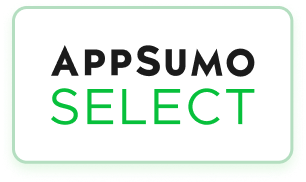What are past projects, failures, or successes you’ve had in your career?
We’ve come a long way, building our product across different markets and experimenting with various niches. We wouldn’t say we’ve had outright failures — in some cases, user adoption was faster, in others slower. But through this journey, Albato has grown to cover a wide range of integrations and systems, offering users a truly flexible and powerful set of features.
What 3rd party tools is your product critically dependent on?
No critical dependencies
Where is your customer data stored?
Amazon, Ohio, USA
What is your current monthly recurring revenue (MRR)?
450 000+
How many customers do you have today?
50 000+ active users (paid + free)
What’s the origin of the idea for your product?
Previously, I was the founder of another company that built an end-to-end analytics platform. While growing that business, I realised that solving real problems often required pulling data from dozens of different sources — and the only way to do it was through developers. That’s how the idea for Albato was born: a platform that connects different systems, transfers data, and sets up automations. Over time, it evolved from a simple data transfer tool into a full orchestration platform, where users can design flexible workflows not only for moving data, but also for processing and enriching it. With the rise of AI, the idea has gone even further. Our team is excited that we can now embed AI agents directly into automations — agents that can “think” and make decisions on their own — bringing maximum flexibility and possibilities to our users’ workflows.
What problem is your product solving and how?
The average business today, no matter the size, relies on at least 20 different systems. For a business to succeed, all of these systems need to work together seamlessly. That’s exactly the problem Albato solves. Albato lets you create automation workflows that define how and when data moves between systems. This eliminates routine tasks, speeds up operations, and automates key processes. And now, with AI integrated directly into these workflows, businesses can achieve even greater efficiency and unlock entirely new levels of productivity.
What’s the #1 thing you’re looking to gain from the AppSumo campaign?
Feedback, virality
What are your plans with the customers, cash, and learnings from the AppSumo campaign?
We know AppSumo users well — this isn’t our first launch. We understand that they invest not only in the product as it exists today, but also in its future growth and development. For us, the most important goal is to gather feedback from users on our upcoming features, especially the AI agents we’re preparing to release. After the AppSumo campaign, we’ll carefully analyze user experience and feedback, and we’ll use the funds raised to further enhance and refine the AI agent functionality.
Any details to clarify about the deal?
Our company actually builds two products. The first is an automation platform for end users — this is the product we’re launching on AppSumo. The second is a white-label automation marketplace for large companies. In this model, we provide our platform fully customised to match the client’s branding and embedded into their interface as a white-label solution. It’s essentially outsourced integrations, a B2B2C model. This second product is much more complex, requiring preparation and implementation time. Although it’s not part of our AppSumo deal, users can find more information and ask questions about it on our website.







 Supercharge workflows with AI-powered automations across 1,000+ apps
Supercharge workflows with AI-powered automations across 1,000+ apps Design, deploy, and manage automations visually—no coding required
Design, deploy, and manage automations visually—no coding required


